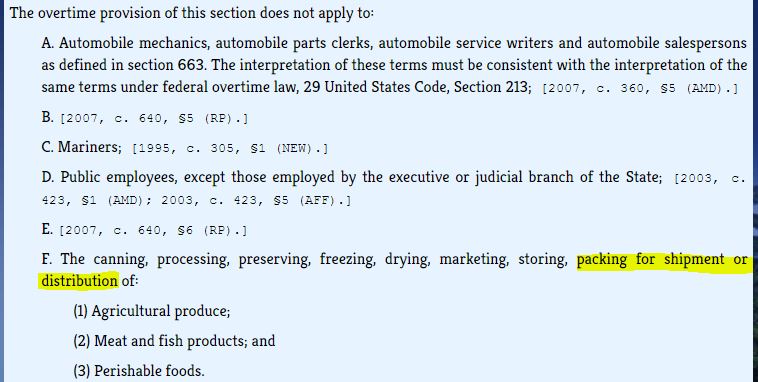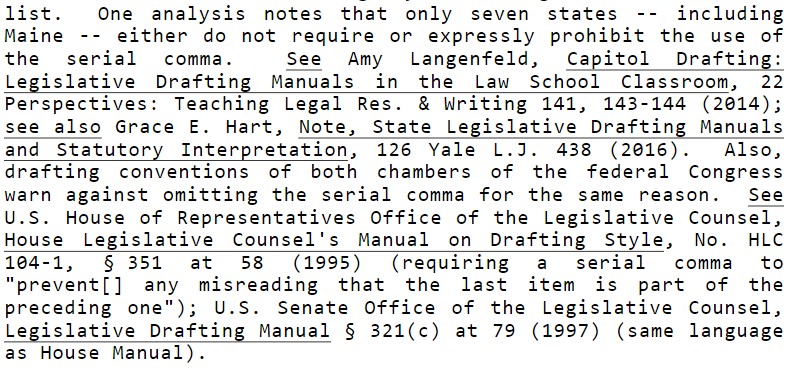In O’Connor v. Oakhurst Dairy, No. 16-1901 (1st Cir. Mar. 13, 2017), the First Circuit Court of Appeals delves deep into the rules about commas in order to interpret a Maine statute.
What would you think? If drivers only distribute perishable food, but do not pack the perishable food for distribution, would the overtime provision of the statute apply to those drivers?
Is the last item in paragraph F “packing for shipment or distribution?” This interpretation would allow the drivers to get overtime pay, since they do not participate in “packing for shipment or distribution.”
Or is the last item in paragraph F “distribution?” This interpretation would allow the dairy not to pay the drivers overtime, since the drivers participate in “distribution.”
Both parties in this case turn to the Maine Legislative Drafting Manual to support their interpretations of the statute. In a footnote, the court provides string citations to other legislative drafting manuals, and even to an electronic journal on teaching legal research and writing in the law school classroom.
Ultimately, the text of the statute was ambiguous, because there was no comma before the words “or distribution.” Because of the ambiguity, the First Circuit had to look outside of the language of the statute in order to interpret it. This is a remedial statute that the legislature intended for the benefit of workers, so the court gave the drivers the benefit of the doubt on how to interpret it.
What if a case like this arose in South Carolina?
Or what if it’s your job to draft a clearly worded S.C. statute?
- There is no publicly available South Carolina legislative drafting manual.
- Perhaps one would turn to the same resources the First Circuit cites in its footnote above: journal articles and federal drafting manuals for the U.S. House and Senate.
- Perhaps one would search for legislative drafting resources held at the Coleman Karesh Law Library.


